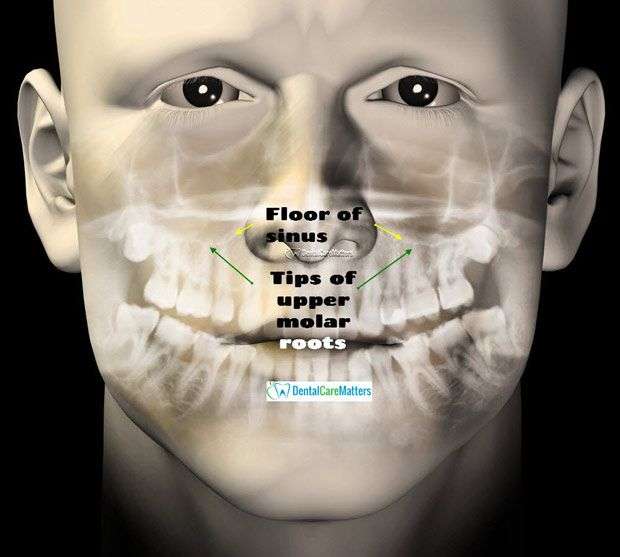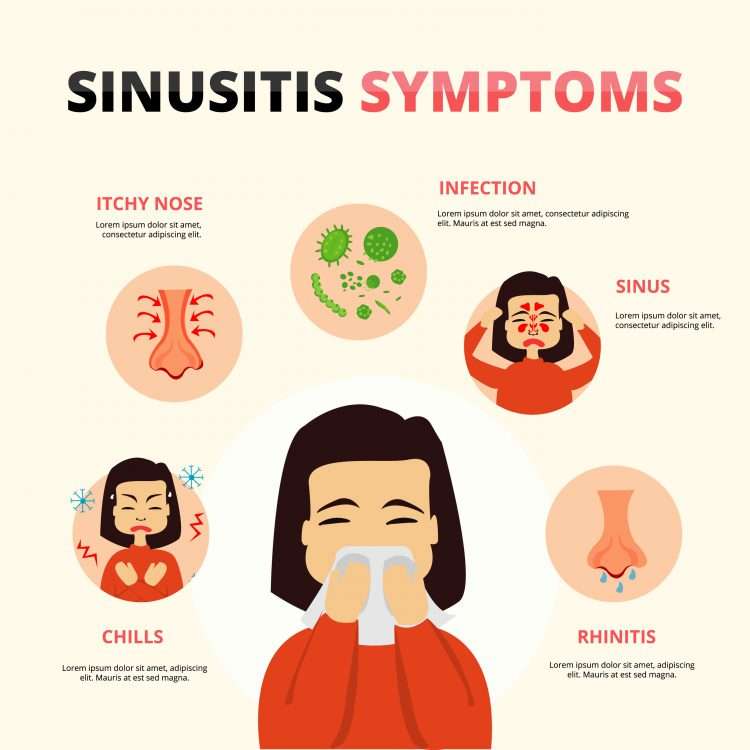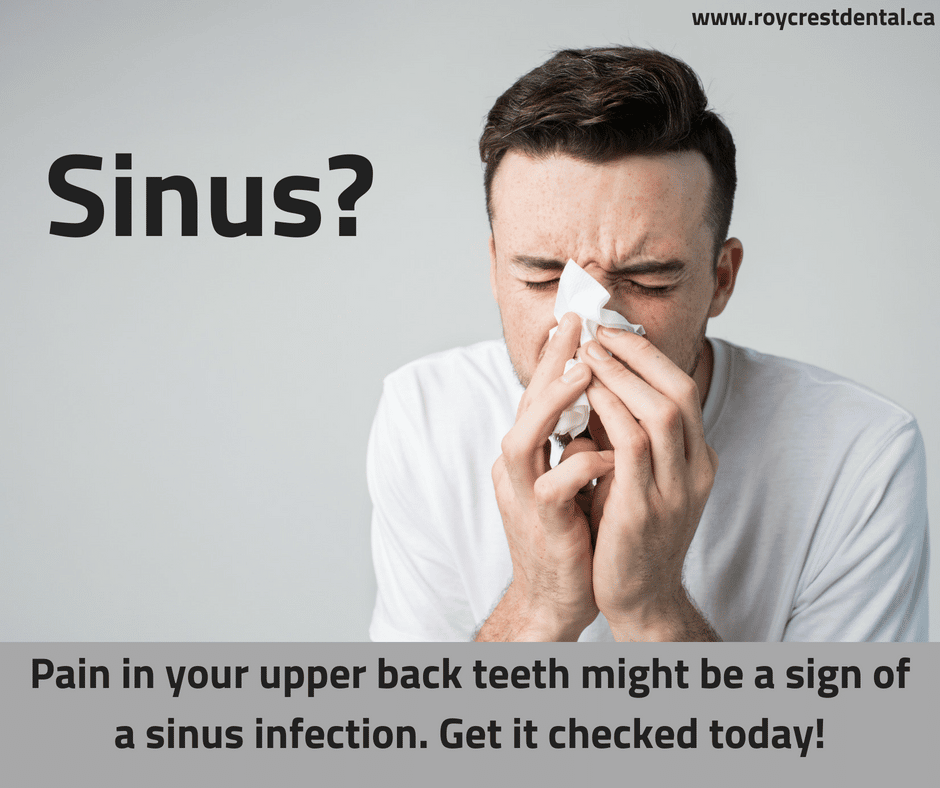Visit Sinus Solutions Of South Florida For Relief From Sinus Infections And Tooth Pain
At Sinus Solutions of South Florida, were proud to help Floridians from Tampa and West Palm Beach get the ear, nose, and throat treatment they need. For patients with a sinus infection and tooth pain that doesnt respond to standard treatments, the minimally-invasive, in-office procedure balloon sinuplasty has proven successful in providing long-lasting sinus relief.
Ready to put an end to frustrating sinus infections and tooth pain? Curious about what to expect after balloon sinuplasty?Call Sinus Solutions of South Florida at 561-790-7744 or contact us onlinetoday!
Related Resources:
How To Determine If Your Tooth Pain Is Caused By Sinus Pressure
Both a sinus infection and sinus pressure, also known as sinusitis, can cause inflammation and swelling. Tooth pain is a common symptom of sinusitis, which can be caused by sinus pressure and the drainage that comes from sinus infections. The pain is usually felt in the upper rear teeth that are closest to the sinuses.
While sinus pressure may cause tooth pain, how can you know if your tooth pain is caused by sinusitis? Sinus tooth pain is felt mainly in the upper molars and affects several teeth instead of just one. Sinus pain felt in the teeth can also cause you to have a low-grade fever.
A toothache that is caused by dental problems will likely only hurt one tooth and be more intense.
Is Your Sinus Infection Causing Your Toothache
That ache in your tooth is making you miserable. Its throbbing, and it gets worse when you bite down. Your gums feel swollen. Would you believe that it may not be a dental problem? It could be a sinus problem.
Tooth pain is a problem for a lot of us. According to the Centers for Disease Control and Prevention , in the last year 40% of adults have had mouth pain. That pain often stems from dental problems like tooth decay and gum disease. But sometimes, sinus problems can trigger toothaches.
Recommended Reading: Sore Throat And Sinus Pain
How Your Sinuses Affect Your Teeth
The pressure and infected tissue in your sinuses behind your cheekbones affects the nerves near the roots of the molars on your upper jaw, creating the pressure-like pain that youll feel. Movement that affects the pressure in your sinuses, such as bending over or jumping, may also affect the pain you feel in your teeth.
Are Sinus Infections And Toothaches Related

Sinus infections create lots of pressure and pain in several areas of the face. The sides of the nose, the temples, and, yes, even pressure and pain surrounding your teeth and gums. However, the bottom line is, what youre experiencing during a toothache is usually not an actual toothache. A real toothache that needs dental attention is usually due to infection. Bacteria enter the teeth through a cavity or crack in the tooth or through old dental work. Sinus infections will not directly affect your teeth or be the cause of a tooth infection.
You May Like: Do Sinus Polyps Need To Be Removed
Can A Sinus Or Ear Infection Cause Tooth Pain
- Post published:November 3, 2022
Can a sinus or ear infection cause tooth pain? Heres why.
Whether it be flu or allergy season, sinus and ear infections are common for both children and adults. You might be experiencing a bout of tooth pain along with other cold-like symptoms. Is this related? It might be, and lets find out why.
Are you feeling under the weather and also experiencing a toothache that seemingly came out of nowhere? While dental issues are not always related to illness, it is possible that your sinus infection or ear infection is causing you tooth pain. As always, its important to set up an appointment with your dentist if the tooth pain continues, to rule out any other reasons such as cavities, infection, etc.
Tooth Infection Problems What You Need To Know
Tooth infection can be one of the most preventable infections, but if left untreated can also lead to other complications with other organs in your body. In this blog post we investigate a series of questions about the problems people experience with tooth infections, how to avoid them and what you can do to treat them if necessary.
Read Also: Does Nitrofurantoin Treat Yeast Infection
You May Like: Best Antibiotic For Sinus Infection And Ear Infection
Is It Sinus Pressure Or A Toothache
Did you know that sinus pressure can cause symptoms that closely mimic a regular toothache? Sinus congestion and infections can cause your upper teeth to hurt as if you had a cavity or even an abscess. In this blog post, youll learn why sinus pressure can cause a toothache, how to tell if a toothache is related to sinus pressure, and what to expect if you go to the dentist with possible sinus pressure issues.
Understanding The Sinus Cavity Anatomy
To know more about how a sinus infection can cause tooth pain, you must first understand the sinus cavity anatomy. This cavity is made up of maxillary, ethmoid, sphenoid, and frontal sinuses. The frontal sinuses are located near the forehead, slightly above the eyes. The sphenoid sinuses are located behind the eyes. The maxillary and ethmoid sinuses are located on each side of the nose. All these sinuses filter, warm, and moisten the air in the nasal cavity. They also produce mucus which cleans the nose.
If these sinuses become blocked, you are likely to suffer from a sinus infection. This infection will cause congestion and pressure in your sinus cavity. Since the roots of your upper back teeth are near your sinus cavity, these teeth may become painful when you are suffering from this infection.
Don’t Miss: Heat Or Cold For Sinus Pain
Differentiating Between Regular Vs Sinus Infection Tooth Pain
Because the signs and symptoms of a regular toothache and sinus tooth pain are very similar, people often get confused between the two culprits. One difference between the two is that toothache from the sinus often causes pain in multiple teeth, which is usually experienced in the upper molars. If your teeth hurt and along with it you experience some other symptoms that are listed below, know that the reason behind your tooth pain is sinusitis. Some patients also complain of having fever and low energy levels.
What Are The Best Ways To Treat A Painful Tooth
Painful teeth calm down quickly once you treat the underlying problem. Sinus infections may be treated with home care strategies, such as using steam and avoiding allergens. Antibiotics and decongestants are useful for treating infections that dont respond to self-care methods.
Pain that has a dental origin will require treatment such as dental fillings, crowns, or root canals. Extractions are a last resort method that is used when other treatments are not possible.
Tooth pain from both sinus infections and dental problems is often severe and unrelenting. In both cases, the problem can rapidly get worse if you dont seek treatment.
Identifying the source of a toothache is tricky. It is best to get your dental and sinus health evaluated by a professional. Whether you have a sinus infection or a tooth problem, early diagnosis, and treatment help you find comfort faster.
Read Also: How To Get Rid Of Viral Sinus Infection
When To See A Professional
Usually, these home remedies can clear up your sinus infection within seven to 10 days. However, if none of these home remedies are working, speak to your doctor. They may recommend taking decongestants, expectorants, corticosteroids, antihistamines, allergy injections, antibiotics, or pain relievers.
You should also speak to your dentist, as they can take X-rays to locate any abscesses or areas of decay that might be causing your toothache and give you more advice on handling sinus toothaches. If you live near San Diego and are suffering from a toothache, visit Espires office in La Mesa, California. Contact us today to schedule your appointment!
Categories
Dental Sinus Infection Symptoms

When an anomalous channel inside your mouth drains from a persistent abscess that originated from a dead or almost dead tooth is called dental sinus.
If someone has a history of past tooth infections and root canal, there is a chance that it will happen again. And this time it can be more dangerous than before.
So, if you feel intense or continuous pain in your mouth, consult with your dentist. If the pain goes away after some time, it may be because of some kind of irritation.
But if the pain remains for more than 24 hour or even two to three days, it can be a dental sinus. So, look out for the common symptoms. They are
- Swelling of your face.
- Pain while eating cold or hot foods.
- Fever or consistent cough.
Don’t Miss: Can I Take Antibiotics For Sinus Infection
How Do You Relieve Sinus Pressure In Your Teeth
Some individuals will find relief from a sinus infection and tooth pain through home treatments. Common strategies include: using a humidifier and/or neti pot, eating spicy foods, staying hydrated, and careful, limited use of over-the-counter medicine.
But patients who struggle with severe sinus infections, sinus infections that wont go away, and chronic sinus infections may need to take a proactive approach.
Difference Between Tooth Pain And Sinus Problems
Its not easy to identify if your tooth pain is caused by a sinus problem or due to other oral issues. Below are some symptoms indicating that the toothache is related to sinus.
1. Congestion in the nasal or sinus2. No tooth decay or cavities are detected in the X-rays3. Only your upper back teeth hurt4. Toothache is present in multiple teeth5. The proximity of the affected teeth to the maxillary sinus6. Your teeth arent sensitive to hot or cold, but the pain is felt when you bite or chew7. The whole area of the mouth hurts
Sometimes a patient might also experience tooth pain after a cold due to the bacteria attacking your existing oral problem when you have a weak immune system.
Read Also: Can I Take Tylenol Cold And Sinus While Pregnant
Diagnosing Sinus Tooth Pain
Sinus toothaches can be difficult to recognize and diagnose due to the fact that symptoms can feel similar to those of normal toothaches. However, there are a few indications that the toothache is due to sinus-related issues.
The first is the location of the sinus tooth pain, which is usually in the upper-back teeth on either side of the mouth. Headaches are also common symptoms of sinus infections and can accompany toothaches.
Causes Of Sinus Infection Tooth Pain
The sinuses are inflated passageways in the face and head covered with mucous membranes. Sleep deprivation, poor diet, stress, exposure to environmental allergens and chemicals, as well as previous illnesses, can inhibit the immune system just enough to cause a sinus infection. Bacterial intruders can increase mucous production and swelling in the sinuses, which not only can exacerbate symptoms but also can form mini-breeding grounds for bacteria.
Just above the upper jaw, inside the cheekbones, are the maxillary sinuses. When inflammation and infection occur here, swelling may force the walls of the sinus cavity to press against the neighboring roots of the upper-back teeth. This pressure can lead to sinus infection and tooth pain, which indicate a dental problem.
The maxillary sinuses affect the upper teeth. Maxillary sinusitis causes continuous pain in the back-upper teeth that increases when the head moves and decreases when lying down. If sinus infections are left untreated or undiagnosed altogether, they can stay active for weeks or months.
Read Also: Neti Pot Sinus Headache Relief
Treating The Sinus Infection
To manage pain in the upper teeth and the sinus infection, you can treat sinus infections with:
- Pain relief medications
Tooth pain caused by a dental issue won’t respond to the above treatment for a sinus infection. It important to be seen by your dentist to see if the dental cause is actually a dental problem such as tooth decay. If left untreated, a sinus infection could cause serious issues related to your central nervous system, so it is crucial to see your doctor if it does not subside.
How To Treat Tooth Pain Caused By A Blocked Sinus
Have your symptoms lasted more than a week? Are you suffering from severe tooth pain caused by a blocked sinus? If so, it is time to go to see the doctor. You and your doctor can discuss a treatment program. With their help, you can end your sinus infection and ease your toothache.
Your doctor is likely to prescribe you corticosteroid drops or a spray, and/ or an antibiotic. While sometimes these medicines are necessary, they may not ease your symptoms. If your tooth pain persists you should see an ear, nose, and throat specialist. At this point, they may want to discuss your surgical options.
Once you have cured the infection, it is time to start thinking about solving the problem for good.
Don’t Miss: Is Tylenol Cold And Sinus Safe During Pregnancy
Types Of Sinus Infections: Chronic Vs Acute
There are four types of sinus infections. These classifications depend on the length and frequency of the infection:
- Acute sinusitis.This type of sinus infection lasts only for a short time, defined by the American Academy of Otolaryngology as less than 4 weeks. This short-term infection is usually part of a cold or other respiratory illness. It may also be caused by a bacterial infection .
- Subacute sinusitis. A subacute sinus infection lasts between 4 and 12 weeks .
- Recurrent acute sinusitis. An acute sinus infection is considered recurrent if the infection returns four or more times within a year, with each infection lasting 7 days or more.
- Chronic sinusitis.Chronic sinus infections last for more than 12 weeks or continue to recur.
Many sinus infection symptoms are common in both acute and chronic forms. Seeing a doctor is the best way to learn if you have an infection, find the cause, and get treatment.
For cases of acute bacterial sinus infections, these symptoms last at least 10 days without improving, or they worsen within 10 days after seeming to improve. In this case, its important to talk with a doctor, such as a general practitioner or an ear, nose, and throat doctor , to get a diagnosis and treatment plan.
Learn more about the symptoms of a sinus infection below.
Sinus Pressure In Teeth

Sinus infections, or sinusitis, are so common that many of the telltale signs are recognizable: congestion, postnasal drip, facial pain and tenderness, sore throat, fatigue, and fever. But many people also experience teeth pain. Well explore the connection between sinus infection and toothache, and take a look at some rare complications from sinus infection.
Dont Miss: How Can I Get Rid Of A Sinus Headache
Also Check: Advil Or Tylenol For Sinus Pressure
Throat Irritation And Cough
As discharge from your sinuses drains down the back of your throat, it can cause irritation, especially over a long period of time. This can lead to a persistent and annoying cough, which can be worse when lying down to sleep or first thing in the morning after getting up from bed.
It can also make sleeping difficult. Sleeping upright or with your head elevated can help reduce the frequency and intensity of your coughing.
Its A Good Idea To See A Dentist If Youre Experienced Sinus Pain & Tooth Pain
It can be hard to tell the difference between normal sinusitis and a tooth infection on your own, particularly if you have an advanced tooth infection that causes odontogenic sinusitis.
Because of this, we recommend that you see a dentist in Bluffton right away if youâre experiencing any oral pain thatâs accompanied by sinusitis. While you may not have a tooth infection, itâs a good idea to find out for sure. The sooner you treat an infected tooth with root canal therapy in Bluffton, the more likely it is that you will be able to save the tooth and minimize further complications.
So donât wait. Contact Buckwalter Dental Care online or give us a call at 815-3232to get the help you need from Dr. Joel Darrah, and make sure your teeth and sinuses remain healthy and strong.
You May Like: How To Treat A Sinus Infection Fast
How To Identify A Toothache Vs Sinus Pressure
Mouth pain. It not uncommon and many of us have or will likely experience it in some capacity at some point throughout our lives. However, just because youe noticing a degree of oral pain, it important not to self-diagnose or come to a conclusion on your own. Here is where wee going to describe how to identify a toothache versus sinus pressure.
What is a toothache?
Simply put, a toothache can be defined as experiencing pain in or around a tooth. Toothaches can be caused by a variety of dental issues, including: tooth decay, an abscess, cracked or damaged teeth, a loose or broken filling, grinding your teeth, or an infection.
How do I know if I have a toothache?
If you have a toothache, you may be experiencing symptoms like: sharp or throbbing pain in a localized area in your mouth, swelling, a fever or headache, or a foul taste/smell from the infected tooth. If there is swelling, youl want to schedule an appointment with your dentist ASAP. Additionally if the pain is severe if you start to develop pain in your ear, head or when opening your mouth or if youe having difficulty swallowing or breathing,youl want to contact your dentist to help remedy the problem as soon as possible.
How will my toothache be treated?
How can I prevent a toothache?
What is sinus pressure?
But why do my teeth ache when I have a sinus infection?
How do I know if I have sinusitis?